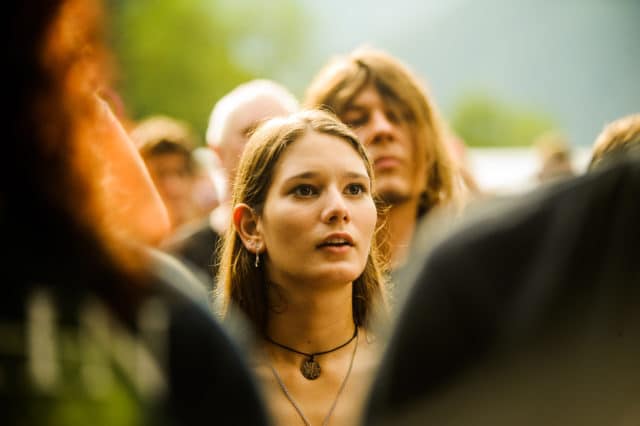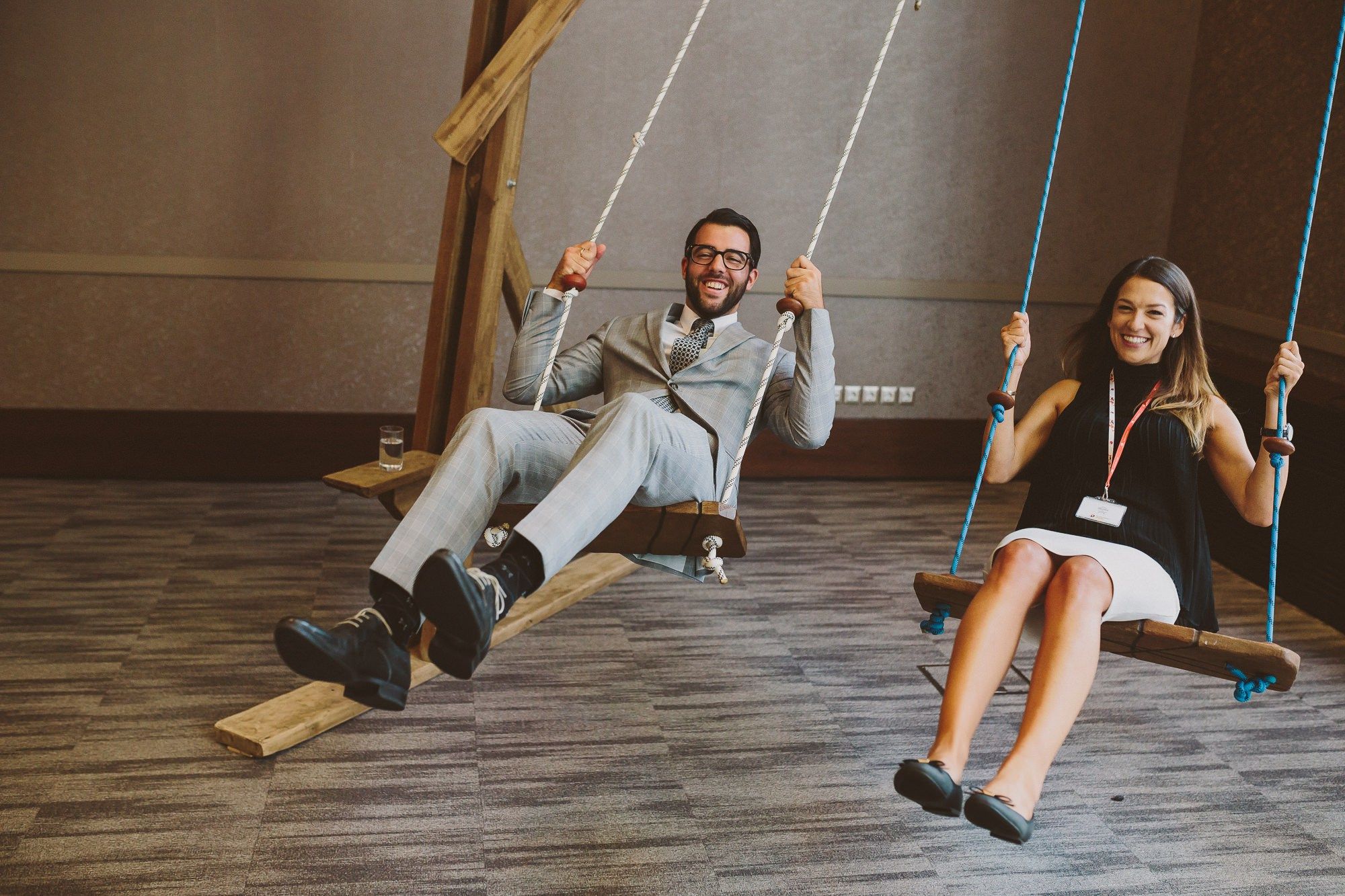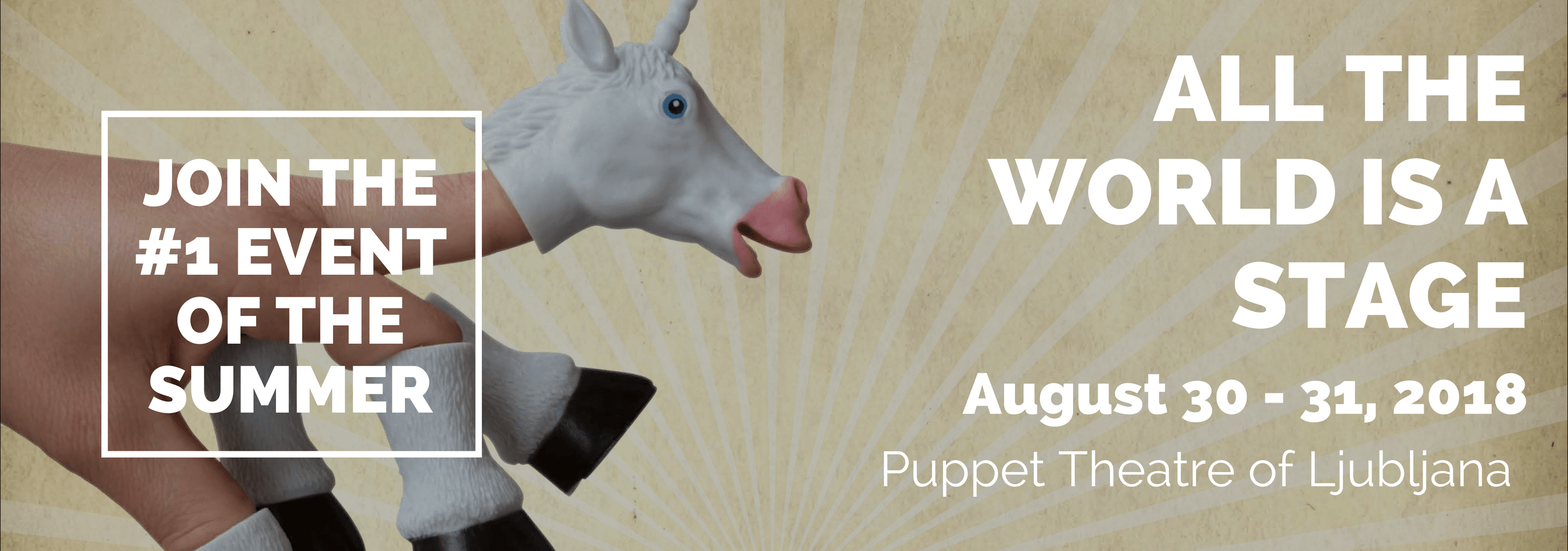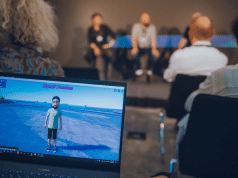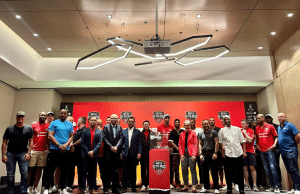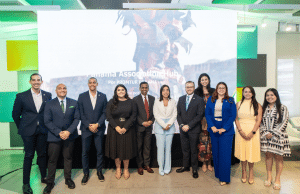Why are events the driving force of modern tourist destination marketing?
In 2004, when the first headbanging metal lovers appeared at the confluence of the Tolminka river, even the most optimistic strategists could not imagine that their beloved Soča Valley would later be known as the Valley of Festivals.
When a group of adrenaline junkies came to the idea of riding old-style Pony bicycles up the Vršič pass, nobody in their right mind had thought that it would become one of the most important tourist events of the Upper Sava Valley.
When Leo Ličof carried out a festival of ethno music in Bled for the first time, nobody believed that the Okarina Festival would someday celebrate its 25th anniversary.
When stand-up comedians Tin Vodopivec and Andrej Težak-Tešky envisioned a festival of stand-up comedy called Panč, nobody had envisioned that it would become the central regional stand-up festival, celebrating its 11th anniversary this year.
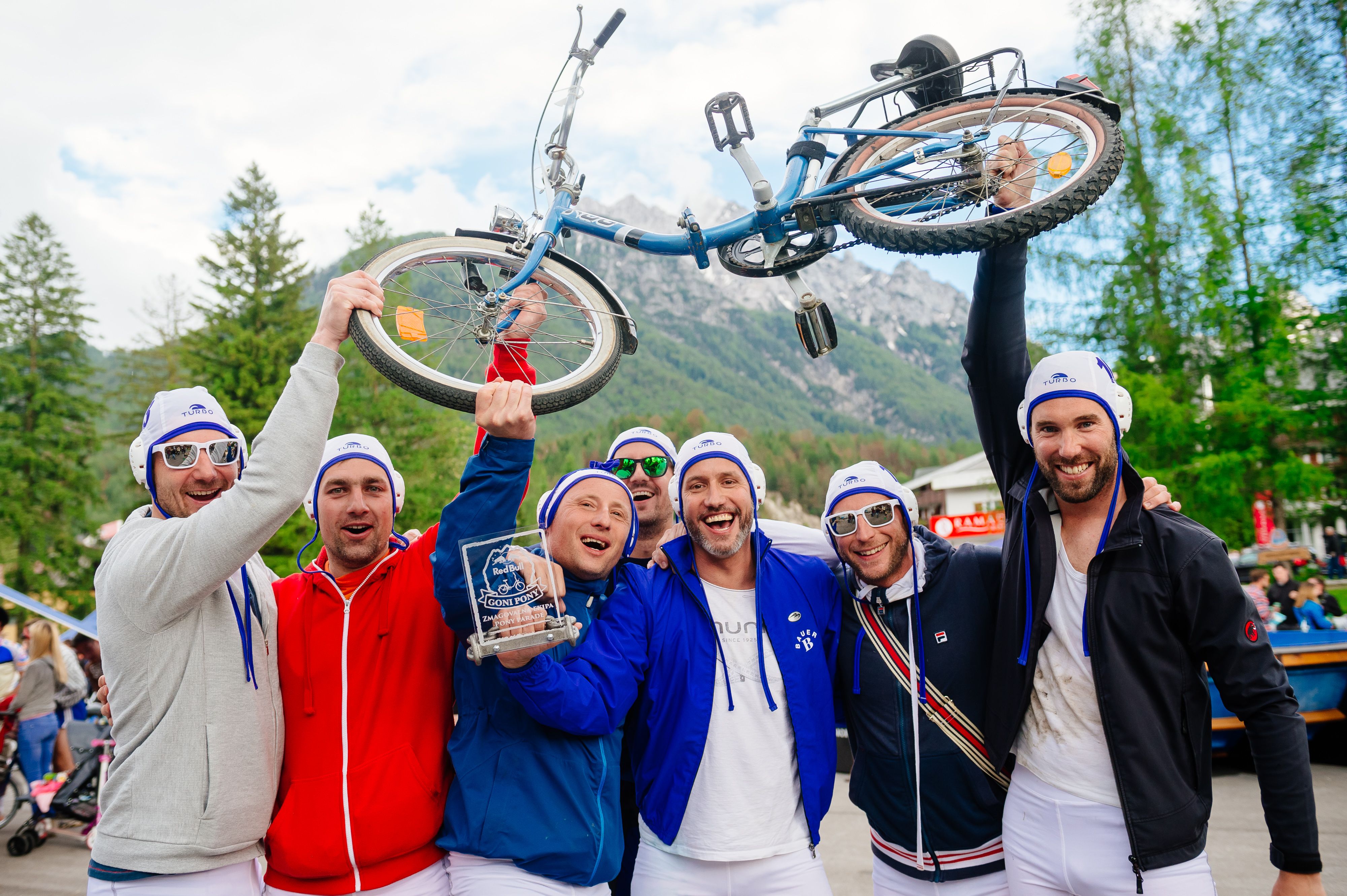
1. Personal contact with the destination
The most basic and quite logical outcome of an event is a first-hand experience of the destination, which can not be replaced by any virtual machinery. If the experience is positive, your destination will have the best mouth-to-mouth marketing you could ever ask for. This sounds simple, but carrying that out in practice is much more difficult.
2. Free buzz on social media
If you checked off the first point and made the participants happy, they will definitely share their happiness and positive experience on social media, as that is just how the homo sapiens of the digital age function. This kind of promotion would otherwise be out of reach for local and national tourist organisations
3. Positioning on the world map
Not everyone succeeds in becoming world-famous, but Tolmin is a good practice case that, thanks to the organisers of the Metaldays, has succeded in exactly that. A positive example is also the Tour of Slovenia, which is celebrating its 25th anniversary and is firmly positioning Slovenia on the world sports map.

4. Direct marketing of the organisers
Event organisers usually try to appeal to as wide of a circle of participants as possible, turning to a combination of marketing tools, from the old-school advertising to sophisticated content and digital marketing. Smart tourist destinations know how to capitalize on that, as they reach their target group through a mutual marketing strategy.
5. Accurately measuring communication efficiency
Precise measurement of communication efficiency on all points of contact between the organiser and the participants has become easier than ever. This gives us priceless feedback about the quality and efficiency of communication activities built around your event, destination or venue.
6. Direct economic effects
Hosting an event in a destination with a well-developed tourist infrastructure has a direct effect on the number of overnight stays and expenditure. Playing a key role here is the concept of the event. A well set-out programme scheme can bring profit to all parties involved.
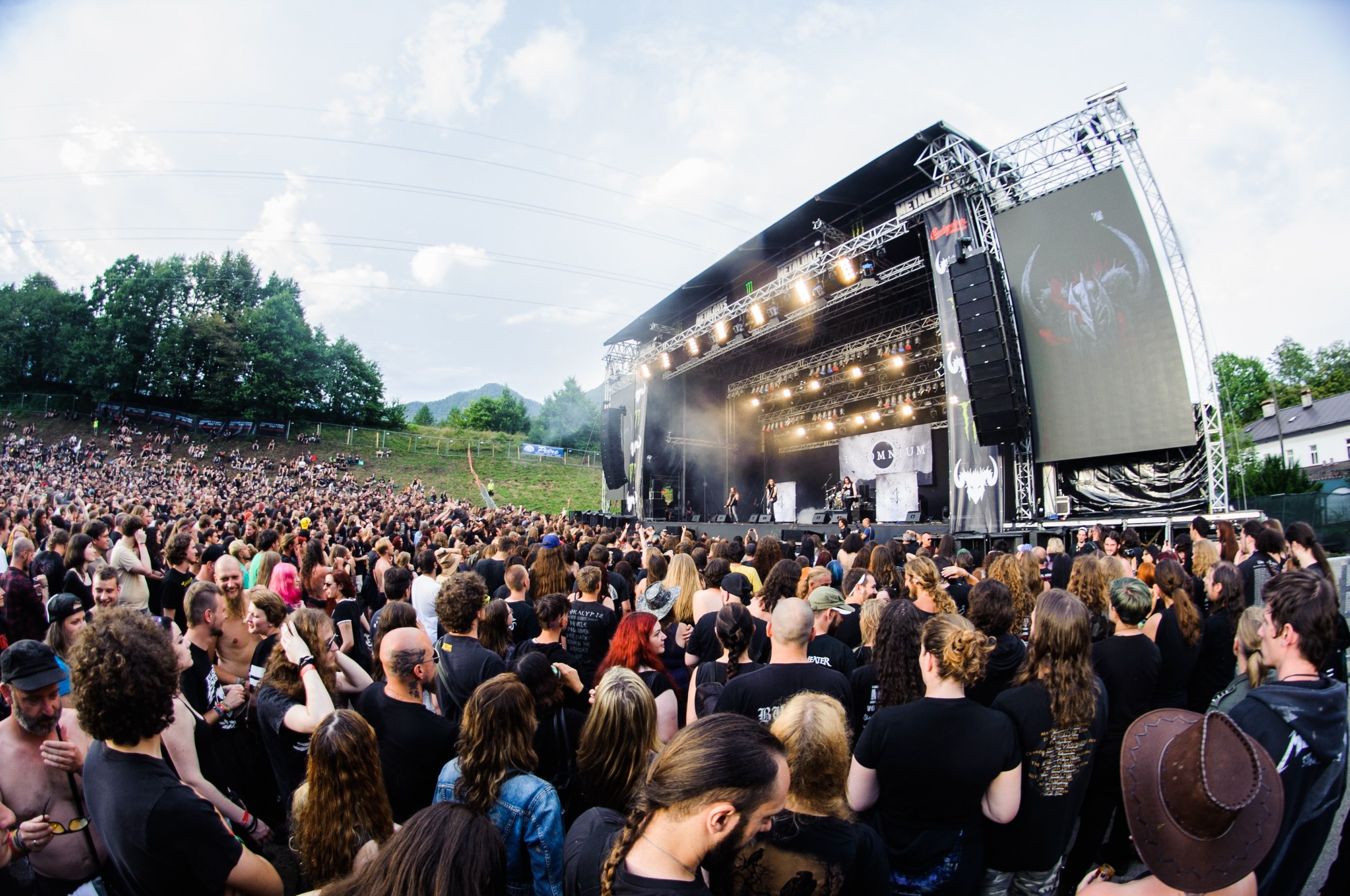
7. Self-image
If festivals and events grow together with the environment, they have a boosting effect on the confidence and self-image of the local residents. If the location is less-known, festivals switch this around and gradually erase feelings of being left out and unrecognizable, and they position the location into the heart of global culture. The latter is also the reason why most locals, consequently, support the festivals.
8. Media exposure
The media still has a significant say in choosing which destination is important, recognizable and which one society should pay attention to. Extensive coverage about an event can convince the public that your destination is worth visiting. In short, being in the media spotlight will give you exposure and spread the word about your importance.
9. Deseasonalization
A lot of festivals happen outside the main (usually summer) tourist season, which contributes to deseasonalization. This demands a clear and thorough coordination with all key players involved. Organisers need the host just as much as the host needs the organisers and with a bit of good spirit a solution for both can be found.
10. A five-star experience
People attend events in their free time and they are prepared to pay a lot of money for an experience they won’t forget. Most of the time, they are well-educated people, who are also interested in the local culture and cuisine; the dream focus group for tourism. The question is therefore: can we offer them the five-star experience they are expecting? You can’t help but draw comparisons with Vienna, a city that very successfully fills its luxury infrastructure with impressive events all year round.

So what’s the main problem? If we only scratch the surface of the most successful events, one thing becomes clear. They are led by local organisers, who are invested in the destination with their heart and soul. These kinds of events are enduring and will last the longest on the market. Moreover, headquarters of the organising companies are usually local, so all the added value and new jobs stay at home.
One of the negative sides of small nations is a chronic lack of confidence. Grass is always greener on the other side and everything that’s foreign is more appealing. The question that people should be asking is what legacy will the event leave to the local community. The thought should be ever present in the minds of people working with public money, especially tourist agencies.
It’s interesting that after the economic crisis, tourist strategies started to grow like weeds, one cleverer than the other, talking about five-star, boutique and luxury products. There’re a few events here and there, but they are never in the forefront of strategic destination marketing.
You don’t have to travel far to find some good practice cases. Neighbouring Zagreb understands the concept very well. To an extent where events are the main motor for promotion and filling capacities in the lowest of tourist seasons (Festival of Lights, Dvorišta, Advent, Zagrebački vremeplov).
The subject and much more will be discussed next week at the Conventa Crossover conference. We are organising Crossover with immense love for events and for stories which our guests from all over Europe will share with us.
One of the central parts of the event is the Conventa Best Event Award with 25 exciting projects competing for it this year.
The project’s main goal is to become a platform for networking and exchanging knowledge between regional meeting planners from international companies, congress destinations and congress service providers. We expect over 150 participants, for whom many surprises are in store. The whole story will be spiced-up by the magical ambience of the Ljubljana Puppet Theatre.
We expect to be joined by many tourist destinations, who will find clear answers about what steps they should be taking in the future.


